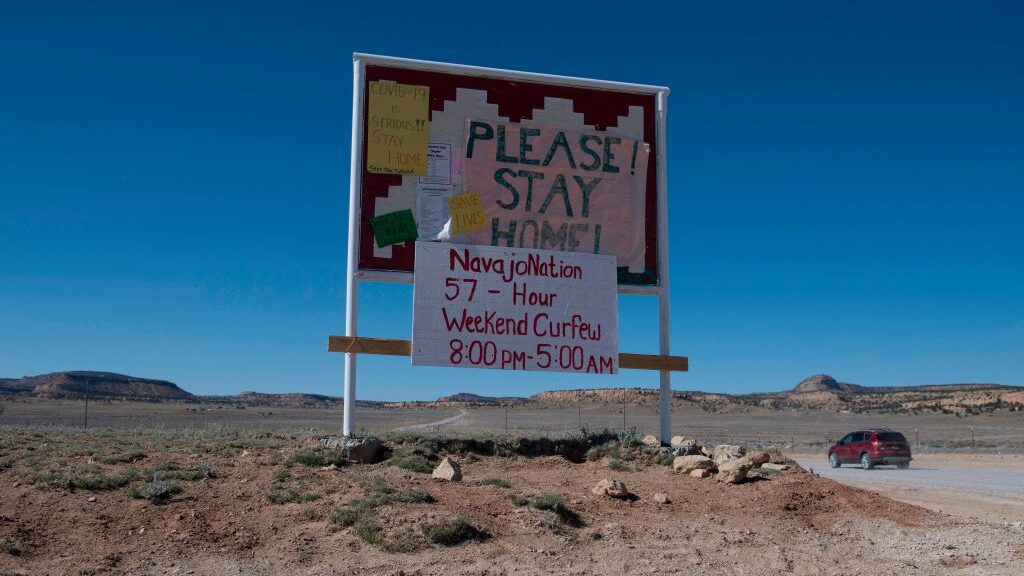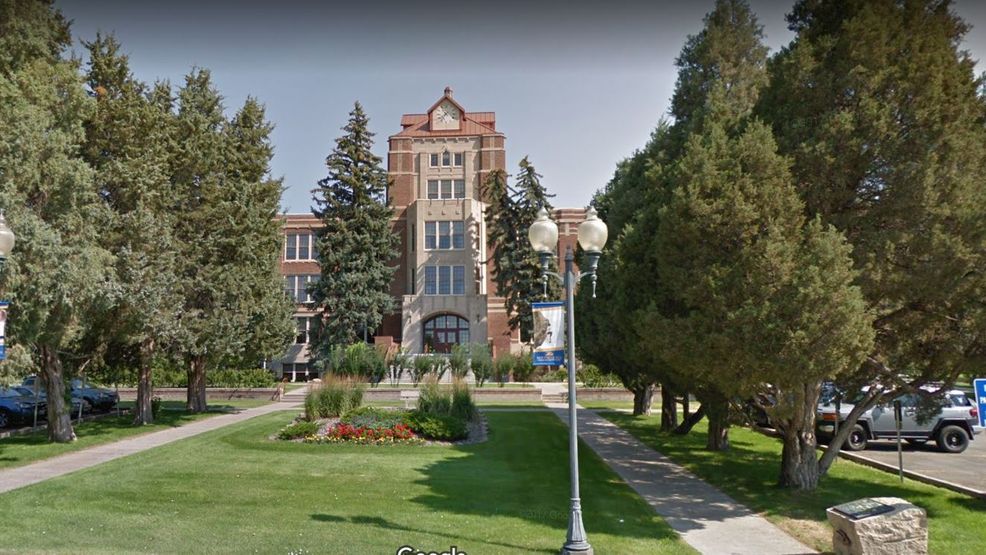I have not taught one of my two favorite courses in person in quite a while. I was on sabbatical last spring, and I taught an online version in the Spring of 2021. I have posted the syllabus here to share recent updates to the course, but also to solicit suggestions and advice. I would like to broaden the focus, or develop a similar course that explores similar issues as they are discussed and analyzed in Australia, Canada, and New Zealand. Before the pandemic, I was well advanced in planning a study-abroad course for Sydney that would allow students and me to learn on the ground in Australia. Please, feel free to share your expertise. I would love to hear your thoughts. I apologize in advance for any gloopiness in the formatting: copying the Word File into this website makes for some awkward transfers some times.
History 262 Indigenous Law and Public Policy Spring 2023
Professor: Michael Oberg
Meetings: MW, 8:30-10:10, Welles 131
Office Hours: Wednesday, 10:15-12:00, Doty 208
Roughly every week or so I post to my blog on matters related to the teaching and writing of Native American history. You are welcome to follow along.
Required Readings:
Stuart Banner, How the Indians Lost Their Land: Law and Power on the Frontier, (2005)
Daniel Cobb, Say We Are Nations: Documents of Politics and Protest in Indigenous America since 1887, (2015).
Sarah Deer, The Beginning and End of Rape: Confronting Sexual Violence in Native America, (2015)
Luke Lassiter, Clyde Ellis, and Ralph Kotay, The Jesus Road: Kiowas, Christianity, and Indian Hymns, (Lincoln: University of Nebraska Press, 2002)
Readings online.
News Articles in online news sources like indianz.com and other online sources.
Court cases and documents as per syllabus.
Recommended Podcasts and other media:
Wind River (Motion Picture)
This Land, Seasons 1 and 2.
Missing and Murdered: Finding Cleo.
Stolen: Surviving St. Michael’s
Stolen: The Search for Jermaine
5-4: Oklahoma v. Castro-Huerta
5-4: Adoptive Couple v. Baby Girl
Course Description: This course will provide you with an overview of the concept of American Indian tribal sovereignty, nationhood, and the many ways in which discussions of sovereignty and right influence the status of American Indian nations. We will look at the historical development and evolution of the concept of sovereignty, the understandings of sovereignty held by native peoples, and how non-Indians have confronted assertions of sovereignty from native peoples. We will also examine current conditions in Native America, and look at the historical development of the challenges facing native peoples and native nations in the 21st century. This course is required for the Native American Studies Minor, and counts for the following Core attributes:
Diversity, Equity, Inclusion
Diversity, Pluralism, Power
Humanities
A Note on Grading: Your work this semester will consist of Participation, Journals, and a Final Paper.
1). Participation is much more than attendance. I view my courses fundamentally as extended conversations and these conversations can only succeed when each person pulls his or her share of the load. You should plan to show up for class with the reading not just “done” but understood; you should plan not just to “talk” but to engage critically and constructively with your classmates. Our conversations will depend on your thoughtful inquiry and respectful exchange. We are all here to learn, and I encourage you to join in the discussion with this in mind. Obviously, you must be present to participate. Please have all assigned readings available when we meet. The reading load in this course is quite heavy. It will challenge you to keep up. If you have trouble with the reading, please let me know. You obviously will be able to participate in classes with the most success when you complete the reading.
2). Journals: On seven occasions during the semester I will read your journals. I want you to think about what you are reading and I want you to write about that experience. You will submit your journals on Brightspace. You should plan on writing a minimum of 300 words a week. DO NOT SUMMARIZE OUR CLASS DISCUSSIONS. DO NOT SUMMARIZE THE READINGS. I hope you will take this assignment as an opportunity to reflect upon what you are reading in class and in terms of current events, to discuss the things you wish that we had a chance to discuss in class, or to say what you wanted to say during one of our class meetings. Show me that you are thinking about the material we cover in our readings and in the classroom. Show me that you are keeping up with current events in Indian Country. Use the journals as an opportunity to educate yourself on issues in Native America that matter to you. Read the news on INDIANZ.COM, National Native News, Native News Online, Indian Country Today, and CBC Indigenous for Canada, and the National Indigenous Times for Australia. I will also tweet out stories that I find of interest under the hashtag #HIST262MLO. In addition, I would like you to follow news on one Native Nation. You can set up a news alert on Google News, and stories will appear in your inbox whenever they occur. You can find a list of federally recognized Indian Nations here. Some Indigenous nations receive more coverage than others.
Final Paper: Your paper should be approximately 15 pages in length. You will take the role of an adviser to a new President. Your assignment is to advise this President on Indian policy. In your paper you will do the following:
1). Identify what you see as a major problem or problems in Native America today that you believe the President should tackle during her or his administration.
2). Explain briefly the historical origins of this problem and how and why previous solutions have either failed to address it or ignored it entirely.
3. Offer a thoughtful, plausible, and realistic path towards solving this problem, and justify it legally and constitutionally.
4. Have at least 30 sources in a thorough bibliography that includes each of the following: news articles, government documents, reports from agencies working with indigenous peoples, and works by scholars who study these issues published in academic journals and books.
5. Format the paper according to the guidelines spelled out in the Turabian Manual. Write the paper with careful attention to grammar, style and substance.
With any of these assignments, I encourage you to visit with me during office hours if you have any questions. You should be clear on what I expect from you before you complete an assignment. The door is open. If you cannot make it to my office hours, please feel free to contact me by email and we will find another time. Many questions can be answered and problems addressed more effectively in person during office hours than by email.
I will write extensive comments on your written work. I will ask you challenging questions, offer what I hope you will view as constructive criticism, and encourage you to push yourself as a writer and a thinker. But I will not give you grades, in the traditional sense, on this work. I want you to benefit from this course. On the date of our first class meeting, we will discuss the standards for the class. You and I will work together to arrive at a set of expectations for the sort of work that will earn a specific grade. In your final journal, and in individual meetings scheduled during Finals Week, we will discuss how well you think you did in meeting the agreed upon standards, and what your grade for the course ought to be. A proposed grading framework can be found, below.
A Note on COVID-19: We will be working together during a continuing global pandemic. Though the pandemic has slowed considerably, there is still reason to be careful. These remain trying times. That you may feel stressed and anxious over the course of the semester is not surprising at all. Your health is important. The health of the people who matter to you is important. If the pandemic is posing a challenge to you doing the assigned work, please feel free to let me know. I encourage you to ask for help if you need it. Stay in touch.
A Note on Phones: I ask that all cellphones be stored during the entirety of our class meeting. If you expect an important call that just cannot wait, please inform me before class. Otherwise, I expect you to refrain from using your cellphone and I expect you to keep it out of sight. Please be present in mind and body.
Discussion and Reading Schedule
25 January Introduction to the Course
The United Nations Declaration of the Rights of Indigenous Peoples
Banner, How, Introduction, Chapter 1; The United Nations Declaration of the Rights of Indigenous Peoples (UNDRIP).
30 January Native Nations in the United States
How to Read a Supreme Court Case
Reading: Articles of Confederation, Article IX; United States Constitution; Northwest Ordinance (1787); Federal Trade and Intercourse Act (1790); Treaty of Canandaigua (1794); Banner, How, Chapters 1-3
1 February The Marshall Court and the Definition of Native Nations
Reading: Johnson v. McIntosh (1823); Banner, How, Chapters 4 and 5. If you are interested in a comparative perspective, I encourage you to look at Stuart Banner’s article, “Why Terra Nullius? Anthropology and Property Law in Early Australia,” Law and History Review, 23 (Spring 2005), 95-131, available on Brightspace.
6 February The Expulsion Era
Reading: Documents on Jacksonian Indian policy (Brightspace); Cherokee Nation v. Georgia (1831); Samuel A. Worcester v. State of Georgia, (1832); Banner, How, Chapter 6.
Journal 1 Due.
8 February The Reservation System
Reading: Ex Parte Crow Dog; Major Crimes Act (1885) and US v. Kagama (1886); Banner, How, Chapter 7.
13 February The Policy of Allotment
Reading: Cobb, Nations, pp. 19-49; Banner, How, Chapter 8;Talton v. Mayes (1896); Lone Wolf v. Hitchcock (1903); United States v. Celestine (1909)
15 February The Indian New Deal
Reading: Reading: Cobb, Nations, pp. 54-93; Banner, How, (finish book) and the Indian Reorganization Act, 1934.
20 February The Termination Era
Reading: Cobb, Nations, pp. 97-106, 115-123; HCR 108; Tee-Hit-Ton Indians v. United States (1955).
Journal 2 Due
22 February Williams v. Lee and the Modern Era of American Indian Tribal Sovereignty
Reading: Williams v. Lee (1959); Native American Church v. Navajo Tribal Council (1959).
27 February The Era of Self-Determination
Reading: McClanahan v. Arizona Tax Commission, (1973); Morton v. Mancari (1974).
1 March Red Power
Reading: Cobb, Nations, 124-188
6 March The Supreme Court’s 1978 Term, Congress and Tribal Sovereignty
Reading: US. v. Wheeler (1978); Santa Clara Pueblo v. Martinez (1978); Oliphant v. Suquamish Indian Tribe (1978); Legislative Packet (Brightspace)
Journal 3 Due.
8 March The Power of Tribal Governments
Reading: Merrion v. Jicarilla Apache Tribe (1982); Duro v. Reina, (1990); Atkinson Trading Company v. Shirley (2001); US v. Lara (2004)
20 March The War on Native American Children and Families
Reading: Adoptive Couple v Baby Girl (2013) (this was a messy case, with two concurring and two dissenting opinions); 5-4 Podcast on the Adoptive Couple case; Margaret Jacobs, “Remembering the ‘Forgotten Child’: The American Indian Child Welfare Crisis of the 1960s and 1970s,” American Indian Quarterly 37 (Winter/Spring 2013), 136-159 (Brightspace); Olivia Stefanovich, “2023 Will Be a Pivotal Year for Indigenous Child Welfare on Both Sides of the Border,” CBC News, 2 January 2023. The Cherokee Phoenix produced its own 42-minute long breakdown of the case, if you are interested in Native American reactions to Brackeen.
This would be a good time to listen to Season 2 of the “This Land” podcast hosted by Rebecca Nagel
Journal 4 Due
22 March Jurisdiction and Sovereignty in the 21st Century
Reading: McGirt v. Oklahoma (2020); Oklahoma v. Castro-Huerta, (2022). Listen to 5-4 Podcast episode on the Castro-Huerta decision.
27 March Sexual Violence in Indian Country
Reading: Deer, Rape. We will discuss the book in its entirety. You will want to begin reading
29 March #MMIW #MMIWG
Reading: Watch this advertisement from the Native Women’s Wilderness, and this one from the United States Office of Justice Programs/Office for Victims of Crimes; Absorb as much of the following as you can: Missing and Murdered Indigenous Women & Girls, (Seattle: Urban Indian Health Institute, 2017); a PBS NewsHour report featuring Abigail HenHawk, who oversaw the Urban Indian Health Institute report; National Inquiry into Missing and Murdered Indigenous Women and Girls. (Explore the website, read the summary of the 2019 Final Report); the report from the Trump Administration’s “Operation Lady Justice”; and President Biden’s Executive Order 14053 from November of 2021.
Search on Twitter using the hashtags #MMIW and #MMIWG. The podcast on the disappearance of Jermain Charlo would fit well here. Give it a listen.
3 April Issues in American Indian Religion: Christianity in Indian Country
Reading: Lassiter, Ellis and Kotay, The Jesus Road, (entire book).
5 April Issues in American Indian Religion
Reading: Employment Division, Department of Human Resources of Oregon v. Smith (1990); Lyng v. Northwest Cemetery Protective Association (1988). Please watch on your own “The Silence,” a PBS documentary on one small Catholic Church in Alaska.
Journal 5 Due
10 April Issues in American Indian Education: Boarding Schools and their Legacy
Reading: Gord Downie, “The Secret Path.” I would also like you to go to the Carlisle Indian Industrial School online project. You can find the website here. Your assignment is, first, to read Louise NoHeart’s student file (Brightspace) and then to read a minimum of at least 5 student files from the Indigenous Nation you have been following this semester (or a related Nation)(Ask for help if you are not clear on how to do this!) In general, for each student there is an information card and a student file. Read both of those and search for the student’s name in the newspapers and other documents. What do you learn about those students’ experiences at Carlisle? Be prepared to discuss what you found.
Please spend some time as well with the ArcGIS project from the University of Windsor looking at Canadian Residential Schools and this nine-minute report by Amy Goodman of Democracy Now!
12 April Mascots and Other Forms of Appropriation
Reading: Materials on the Andrea Smith case; Russell Cobb, “Why Do So Many People Pretend to be Native American,” This Land Press, (August 2014), available here; Audra Simpson, “Indigenous Identity Theft Must Stop,” Boston Globe, November 17, 2022.
17 April Economic Development and Poverty in Indian Country
Reading: California v. Cabazon Band of Mission Indians (1987); National Indian Gaming Commission (NIGC) website.
Journal 6 Due
19 April The Land and its Loss: The Consequences of Dispossession and Environmental Degradation
Reading: City of Sherrill v. Oneida Indian Nation (2005); Stephanie H. Barclay and Michalyn Steele, “Rethinking Protections for Indigenous Sacred Sites,” Harvard Law Review, (forthcoming, on Brightspace).
24 April Resistance: IDLA to Red Lives Matter, Idle No More
Reading: Watch Film: “You Are On Indian Land;” Cobb, Nations, 203-250;
Lakota Law Project, Native Lives Matter; Jonah Raskin, “Red Lives Matter,” Tablet Magazine, October 10, 2021. You can also read my report about the death or Reynold High Pine in 1972; Jason Pero in Wisconsin and Colten Boushie in 2018; Please also look at the Idle No More website and read about this Canadian movement.
26 April GREAT DAY—NO CLASSES: Possible Guest Will Visit our Campus and Our Class.
1 May Health and Well-Being in Native America
Reading: Indian Health Service, “Disparities,” Updated October 2019; Linda Poon, “How ‘Indian Relocation’ Created a Public Health Crisis,” Citylab, 2 December 2019; Mohan B. Kumar and Michael Tjepkema, “Suicide Among First Nations people, Métis and Inuit, 2011-2016),” Statistics Canada, 28 June 2019; Rural Tribal Health Overview, May 2022; Prabir Mandal and Jarett E. Raade, “Major Health Issues of American Indians,” 28 June 2018
3 May What Is To Be Done?
Reading: Read the Preface, Introduction, and Calls to Action in the Truth and Reconciliation Commission Report from Canada, 2015, entitled Honouring the Past, Reconciling for the Future (read only the introduction, and whatever else interests you, in Brightspace) and “Calls to Action and Accountability: A Status Update on Reconciliation” by Eva Jewell and Ian Mosby of the Yellowhead Institute, (2019).
Final Paper Due
8 May What is to be Done? (Continued)
Reading: Harold Napoleon, Yuuyarq: The Way of the Human Being, (Fairbanks: Alaska Native Knowledge Network, 1996).
Journal 7 Due
10 May Final Class Meeting
17 May Final Exam Period, 8:00-11:20: Individual Discussions to consider your final grade.




